

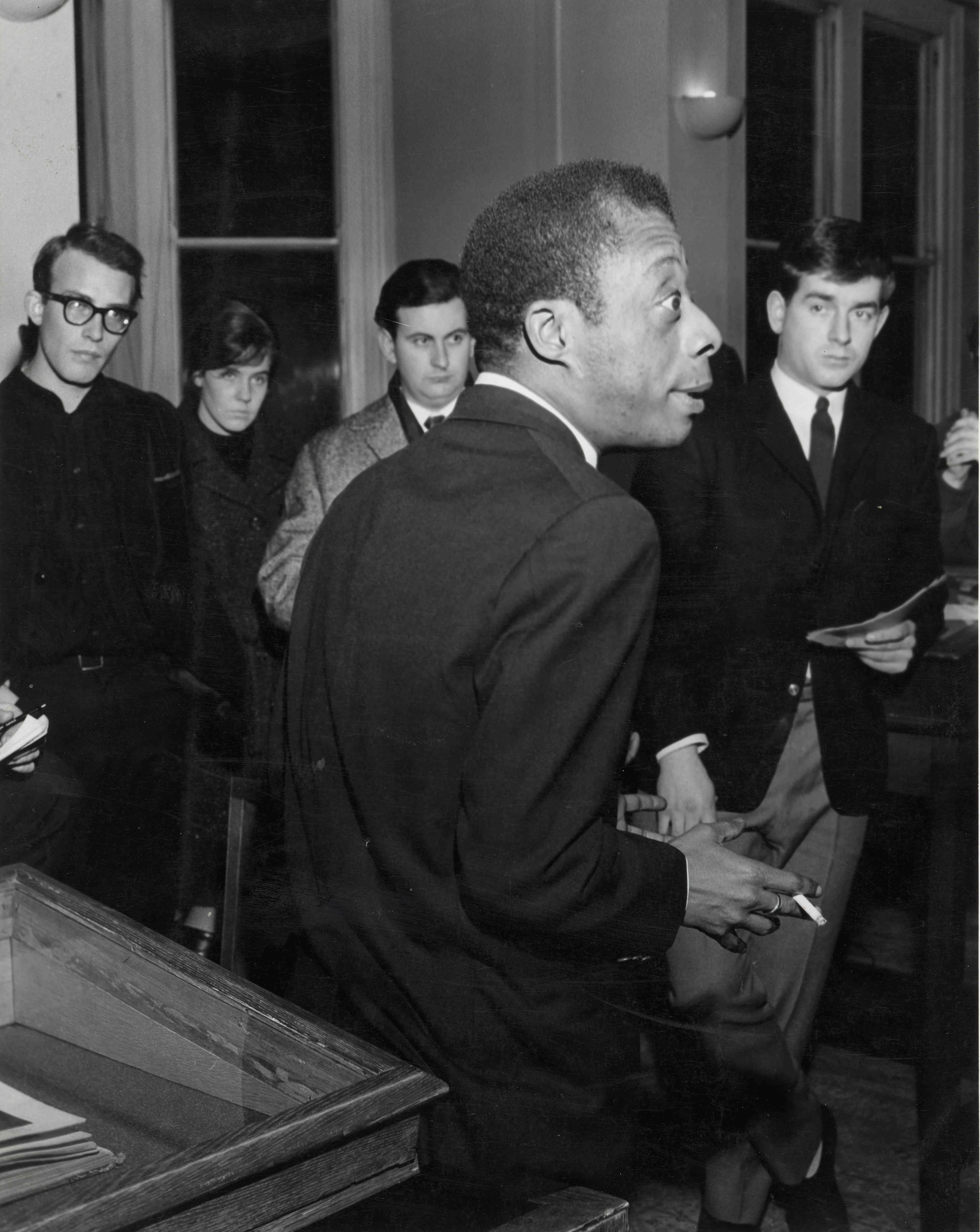
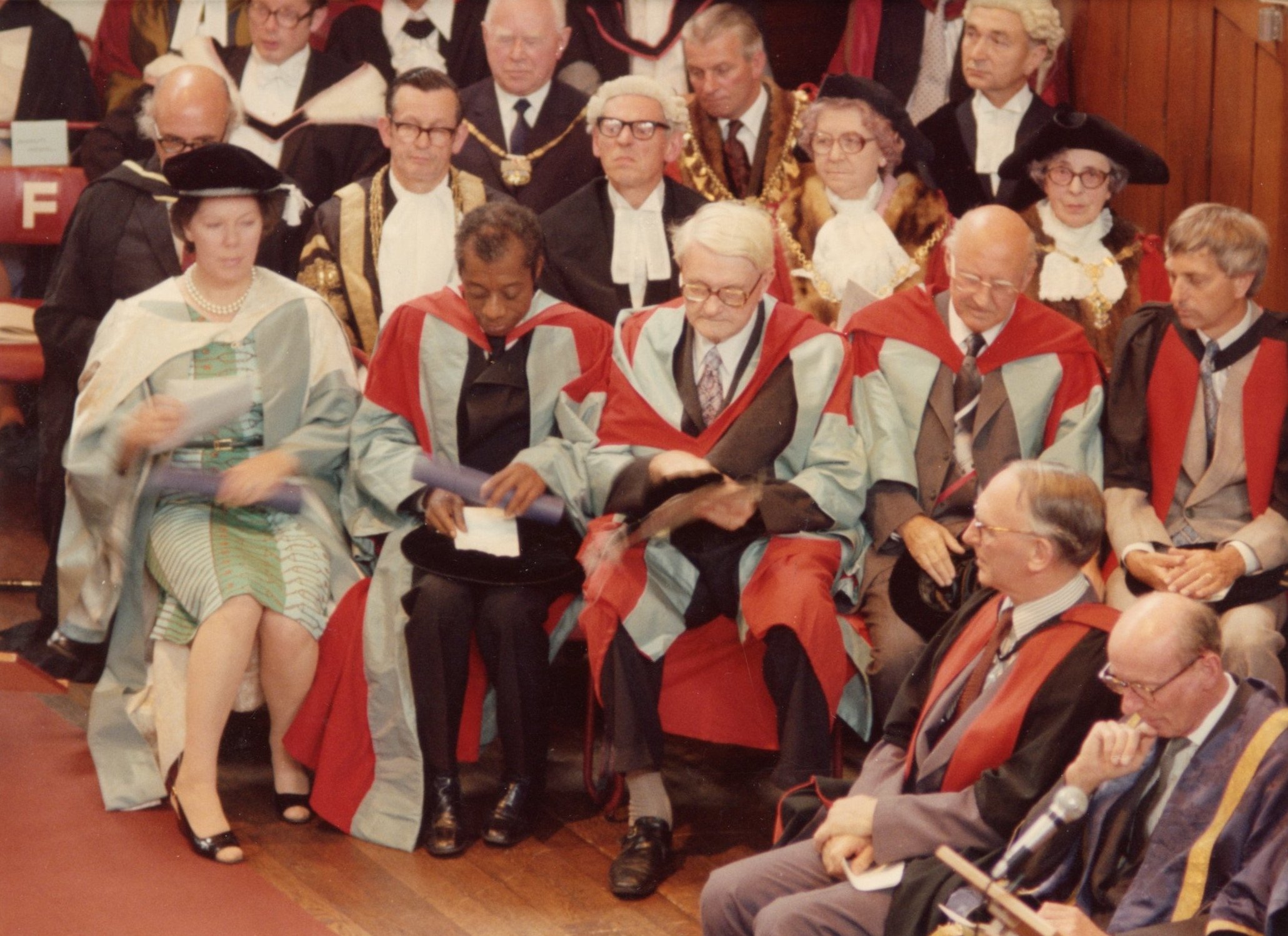
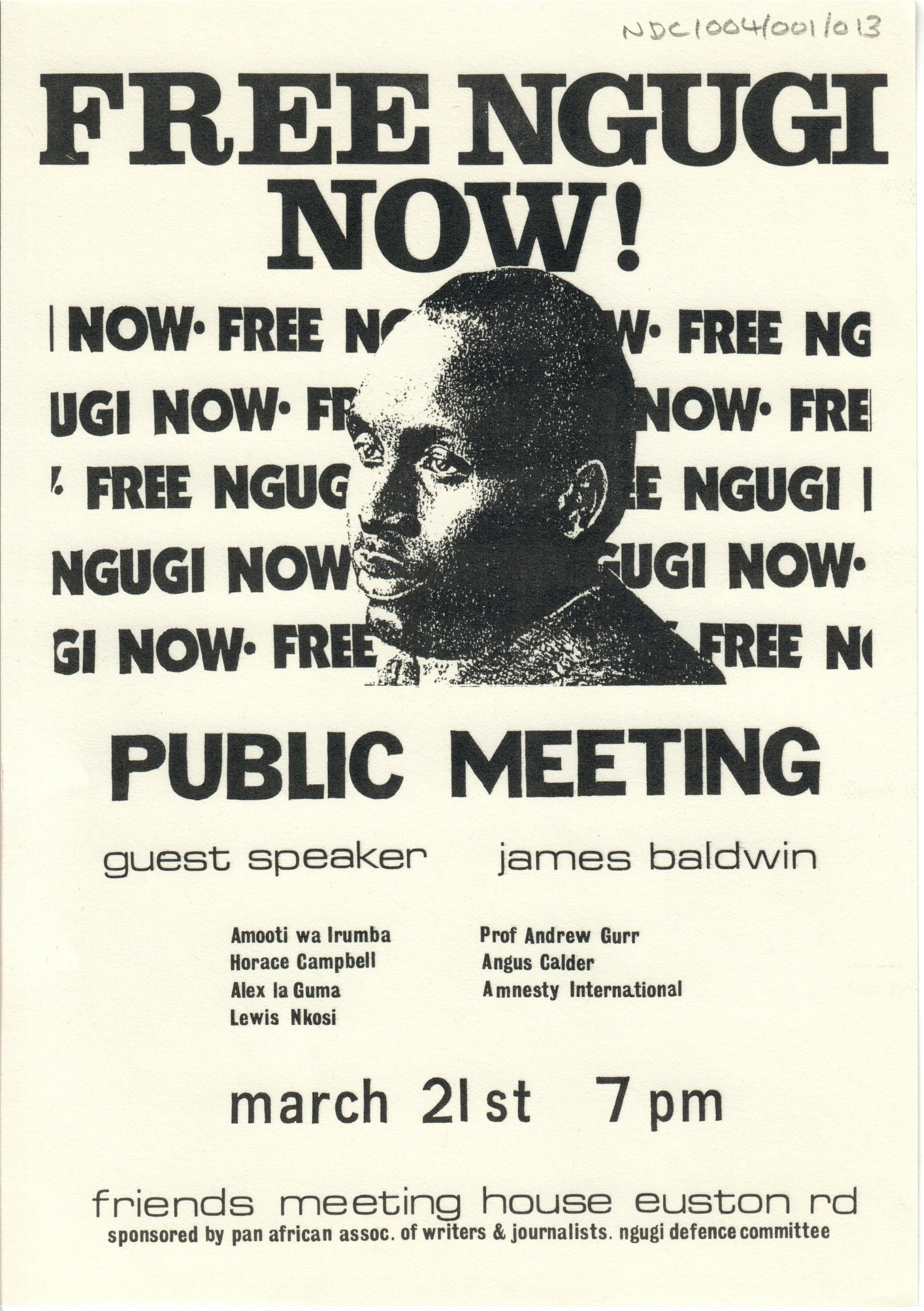
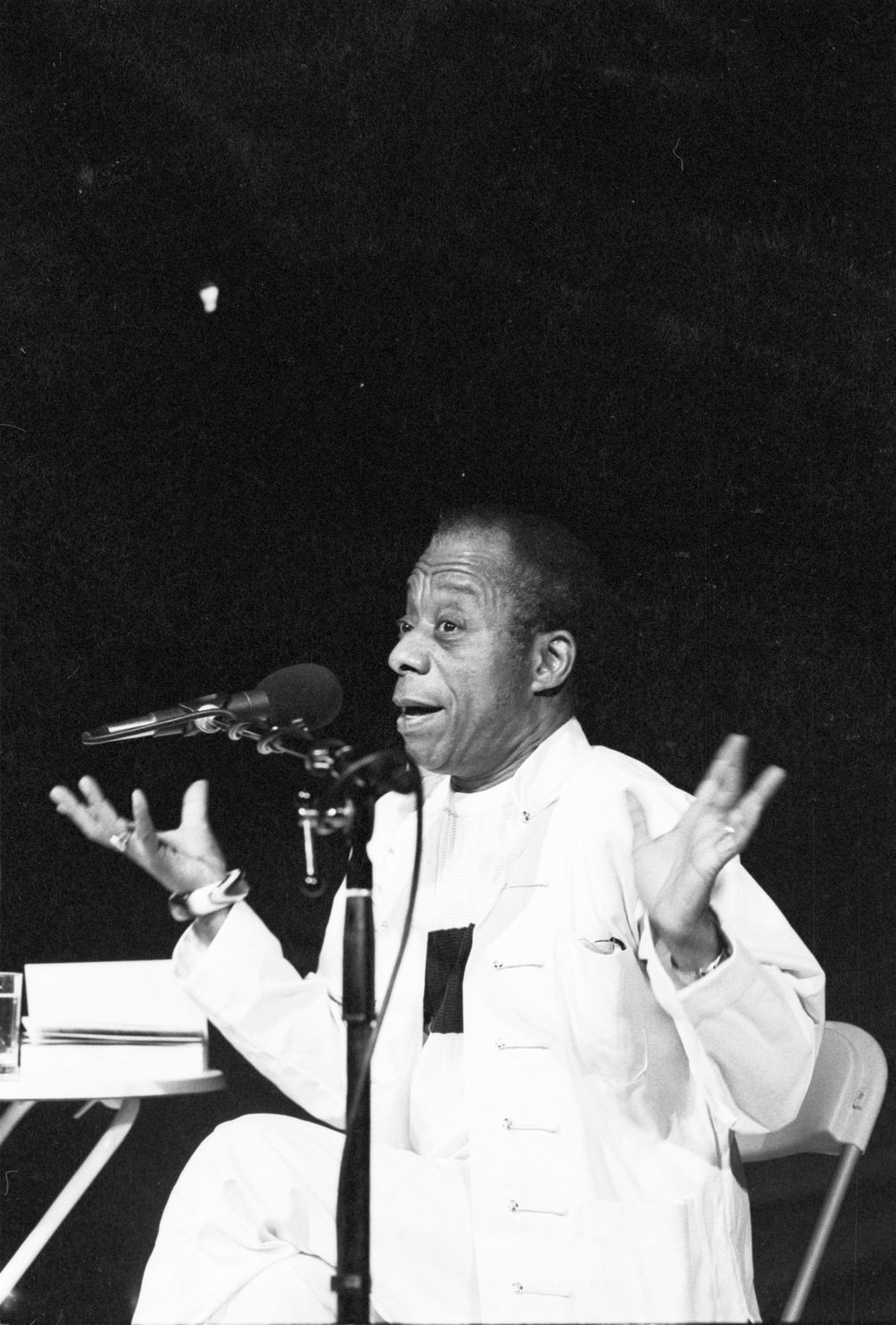
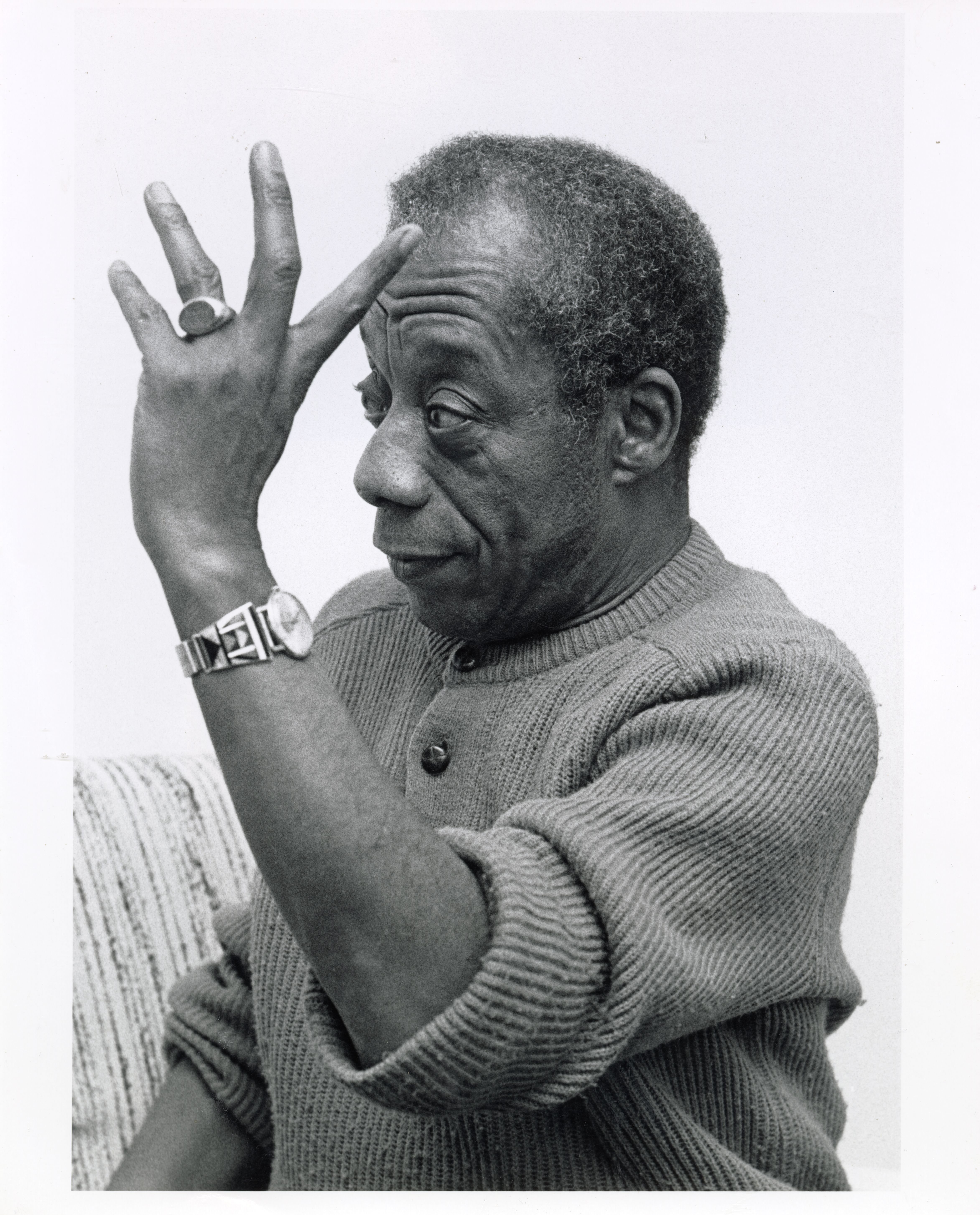
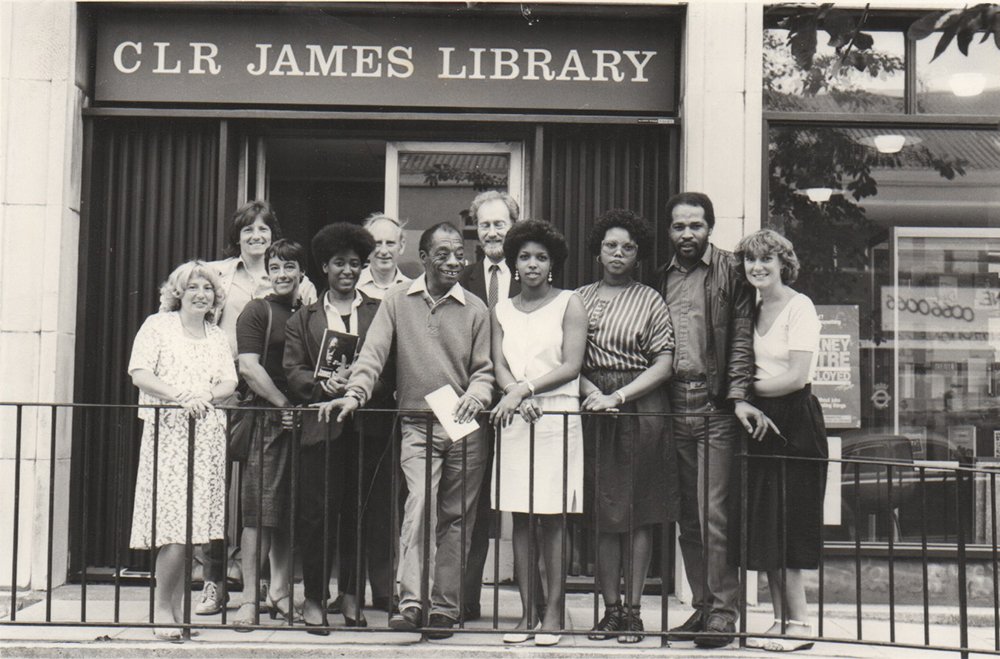
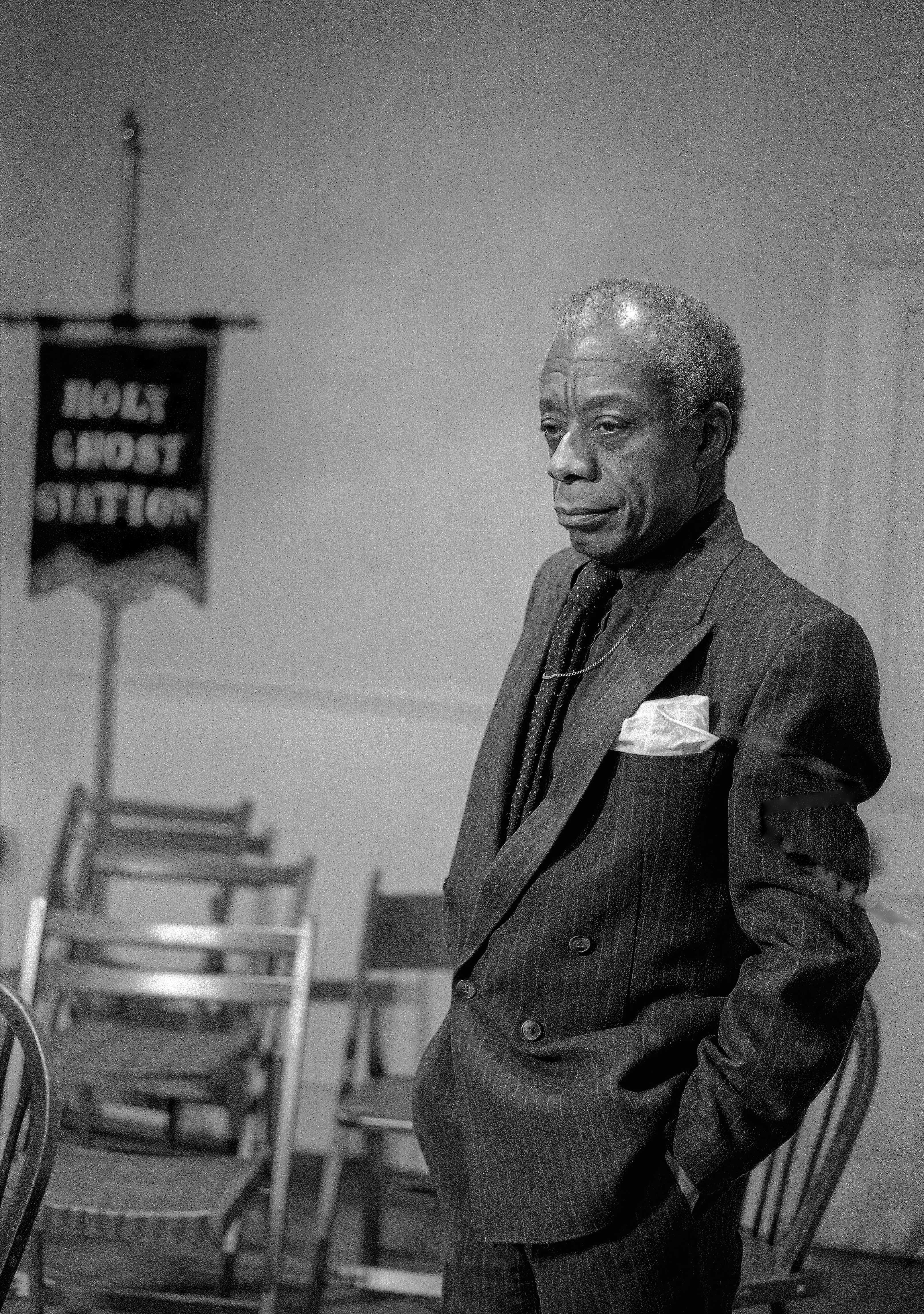
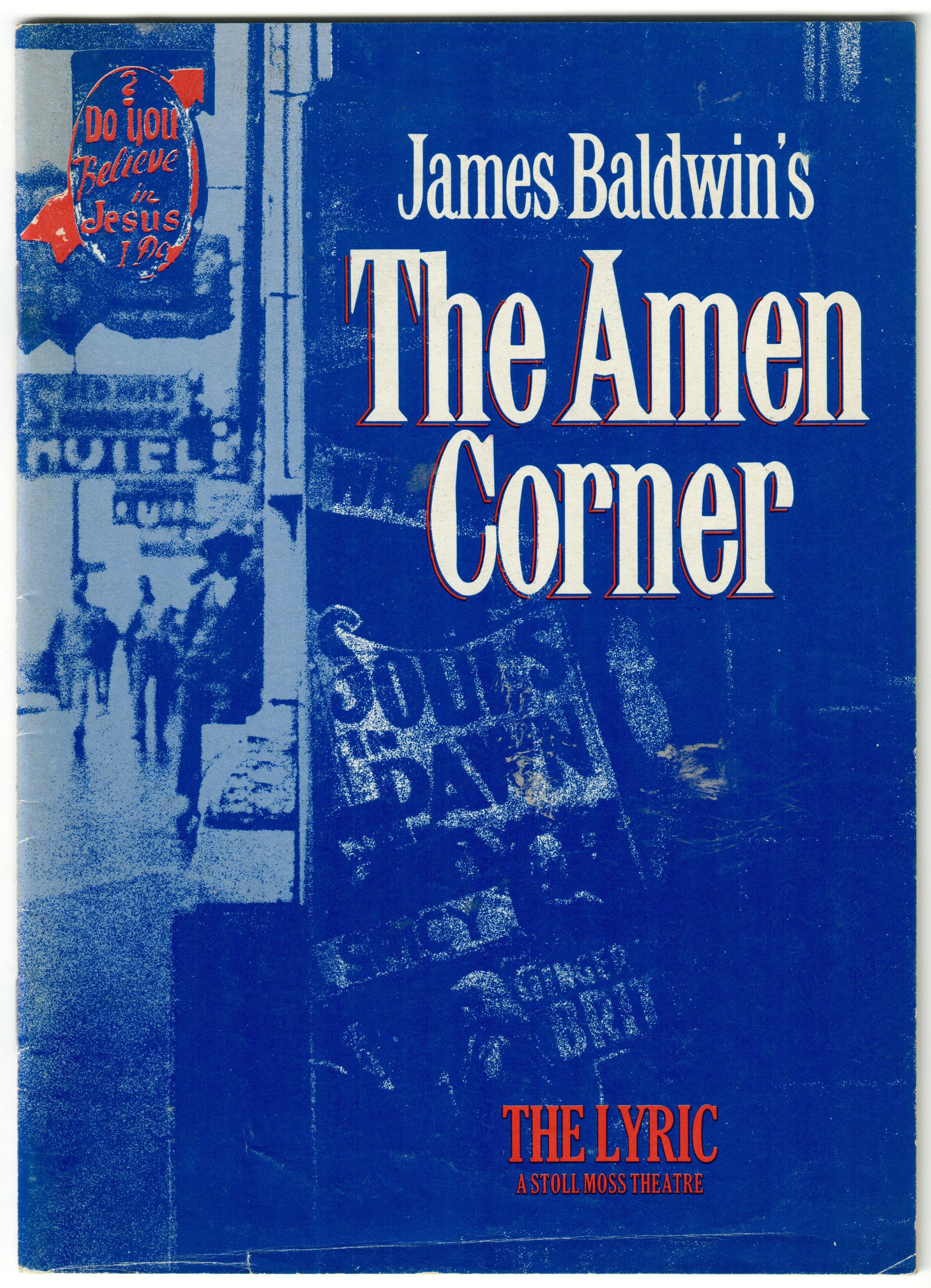
| 1949 |
Baldwin travels from Paris to London in the hope of establishing magazine contacts in the city. |
| 1955 |
James Baldwin visits London to try and stage his first play The Amen Corner and to seek a publisher for Giovanni's Room, a groundbreaking work exploring gay male love set in Paris. At the end of the year, the British publisher Michael Joseph accepts Giovanni’s Room for publication after it is rejected by Baldwin’s U.S. publisher Knopf. |
| 1962 |
Baldwin travels to London where various publishers try to persuade him to leave his publisher Michael Joseph, including Weidenfeld & Nicholson. He remains loyal to Michael Joseph and meets Raleigh Trevelyan who will become his long-standing editor at the publishing house. Baldwin is mentioned in the Guardian as one of the U.S. authors due to attend The Edinburgh Writers International Conference in August. |
| 1963 |
Baldwin travels to London for the U.K. publication of his novel Another Country. He is interviewed by journalist and novelist Donald Hinds for the April edition of the West Indian Gazette. [The West Indian Gazette was a weekly newspaper founded by activist and writer Claudia Jones in 1958 with support from Amy Ashwood Garvey. As Ionie Benjamin writes: 'The West Indian Gazette appeared and was to set a precedent for West Indian Newspaper publishing in Britain in the 1950s. It challenged racism and laws on immigration which were basically aimed at Black people; it offered an alternative and opposing voice; it promoted the Black cause.' Ionie Benjamin, The Black Press in Britain, (Stoke-on-Trent: Trentham Books 1995) pg. 41-2]. |
| 1965 |
Baldwin travels to Britain and meets the philosopher Bertrand Russell at his home in London. (Baldwin is, for a period, involved in Russell’s International War Crimes Tribunal denouncing America’s War in Vietnam). On February 18th, Baldwin takes part in a debate at The Cambridge Union at the University of Cambridge with the conservative commentator William F. Buckley Jr and supports the union’s motion: "the American dream is at the expense of the American Negro." In a post-debate vote, Baldwin wins the motion with 544 votes to Buckley’s 184 votes. Baldwin is told of the assassination of Malcolm X while dining with his sister Gloria in London on February 21st. He cancels his visit to Edinburgh planned for the following day. |
| 1966 |
Baldwin travels to London to discuss a possible film adaptation of his play, Blues for Mister Charlie. |
| 1967 |
James Baldwin asks his editor, Raleigh Trevelyan, to find him a house in London to live in. Baldwin moves to London in October and lives in Chelsea for several months, although as Trevelyan recalled later, 'The London experience didn’t suit him.' (Blues for Baldwin by Raleigh Trevelyan from the Telegraph, 6/12/1987, pg. 21). On May 28th, The Guardian reports that on flying into Heathrow the previous week, on route to Cologne, Baldwin was held at customs and told that he was banned from entering the country by the Home Office because of his association with Bertrand Russell and the International War Crimes Tribunal (despite Baldwin having recently publicly distanced himself from the Tribunal). Baldwin was allowed in later that day but given no explanation of what had caused the incident, nor why he was eventually allowed in. In a letter to the Observer (25/06/67, pg.14) Bertrand Russell writes that he had been warned in a letter from Prime Minister, Harold Wilson, that those connected to the Tribunal may not be allowed into the country. |
| 1968 |
Baldwin and comedian Dick Gregory are filmed by Baldwin’s friend, the director Sir Horace Ové, at the West Indian Student’s Centre, Earl’s Court, London. Ové’s film, Baldwin’s N***** is released in Britain and the U.S. |
| 1971 |
Baldwin is guest speaker at the Soledad Brothers Rally at Westminster Hall in London on April 20th. ['The Soledad Brothers was the name given to three black inmates who were charged with the January 1970 beating of John V. Mills at Soledad State Prison in California. George Jackson (twenty-nine), John Clutchette (twenty-eight), and Fleeta Drumgo (twenty-six) were accused of killing the white prison guard in retaliation for the earlier shooting of three black inmates at San Quentin by another guard, whose case had been dismissed by a grand jury as “justifiable homicide.”’ From the introduction to Speech from the Soledad Rally, in The Cross of Redemption: Uncollected Writings, edited by Randall Kenan (Vintage, 2011), pg. 120]. Baldwin and writer Nikki Giovanni are filmed in London, in conversation, for the U.S public TV show, Soul! (their exchange is later published as a book, A Dialogue, by Nikki Giovanni and James Baldwin, which is first published in the U.S in 1973 and then in Britain by Michael Joseph, in 1975). |
| 1972 |
Baldwin arrives in London, in April, for the launch of his essay collection, No Name on the Street. |
| 1974 |
Baldwin travels to London for the U.K book launch of If Beale Street Could Talk. At the launch he meets filmmaker Michael Raeburn, who is involved in the London based Berwick Street Film Collective. Baldwin and Raeburn become lovers and collaborate on a screenplay of Giovanni's Room. (Raeburn writes about his personal relationship with Baldwin here). |
| 1976 |
Baldwin travels to Hull in July where he is awarded an honorary doctorate by the University of Hull. |
| 1978 |
Baldwin writes an introduction for Zimbabwean film director Michael Raeburn’s book, Black Fire!, and is photographed with Raeburn, in January, at the launch of the book at The Africa Centre in London. Baldwin is guest speaker at a meeting calling for the release of the Kenyan author, Ngũgĩ Wa Thiong’o, at The Friend’s Meeting House, Euston Rd, London on March 21st after Ngũgĩ is imprisoned in Kenya following the publication of his play, Ngaahika Ndenda, (I Will Marry When I Want) written in Gĩkũyũ and critical of the country’s ruling elite. The event is organised by The Ngũgĩ Defence Committee. |
| 1979 |
Baldwin travels to London to promote his novel, Just Above My Head, published by Michael Joseph. |
| 1984 |
Baldwin turns sixty and travels to London where he is interviewed for the BBC 2 programme, Frank Delaney, broadcast in December. The writer Caryl Phillips interviews Baldwin at his home in France for the BBC Radio Programme, No Complaints. (Listen to Phillips speak about his memories of making the programme here). |
| 1985 |
Baldwin flies especially from his home in the South of France to present awards at the Greater London Council Literature Awards which are held at the Royal Festival Hall in London on the 10th of July. He is photographed with writers Fred D’Aguiar, David Dabydeen, and Caryl Phillips, all nominated in the category, Major Published Work, for their respective publications: Mama Dot (D'Aguiar), Hogarth's Blacks: Images of Blacks in Eighteenth Century English Art (Dabydeen) and The Final Passage (Phillips). Baldwin visits the C.L.R James Library in Hackney after it is renamed for the Trinidadian activist, historian and writer following a successful campaign led by anti-racist campaigners in the borough. Baldwin speaks at The Third Eye Centre in Glasgow in late August. He then travels to Edinburgh and appears in conversation with James Campbell at the Edinburgh Book Festival on August 24th. |
| 1986 |
James Baldwin and Sir Horace Ové appear in-conversation at the National Film Theatre, London, in September. The conversation is organised by the Guardian newspaper. |
| 1987 |
Baldwin travels to London for the opening of The Amen Corner at the Tricycle Theatre in Kilburn. The play opens on 20th of January and runs until the 7th of March. The production is directed by Anton Phillips and it is produced by Carib Theatre productions. On the 12th of March The Amen Corner moves to the Lyric Theatre on Shaftesbury Avenue and runs until the 30th of May. On the 23rd of March an interview between Baldwin and writer and broadcaster Mavis Nicholson about The Amen Corner is transmitted on Thames Television. It is available to watch here. On the 6th of May, Baldwin is interviewed by journalist and broadcaster Joan Bakewell for a BBC Two programme. James Baldwin dies in the South of France on the 1st of December. |
| 1988 |
The magazine Race Today organise a memorial event for James Baldwin at Brixton Town Hall on Feb 3rd with speakers including Maya Angelou, Florence Alexis, David Baldwin, Linton Kwesi Johnson, Caryl Phillips and the cast of The Amen Corner. The event is leafleted by the Black, Lesbian, Gay, Bisexual and Trans (BLGBT) group to raise awareness on the implications of Clause 28 or Section 28, legislation introduced, and eventually passed, by Margaret Thatcher’s government banning the ‘promotion of homosexuality’ in schools and libraries. (Held as part of the rukus! Federation Limited Archive at The London Archives). |
*This timeline will be developed and added to as the project progresses.
Our aim is to eventually produce a more extensive visual timeline of Baldwin’s visits and relationship to Britain, featuring archival materials related to his associations with British-based activists, artists and intellectuals.
It will also include all of Baldwin’s appearances on radio and television.